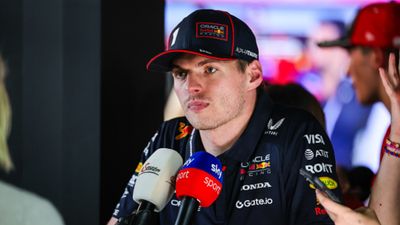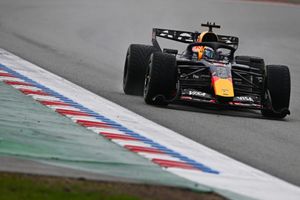Reigning World Champion Max Verstappen has sent shockwaves through Formula 1 after reports emerged of his icy post-race silence following a disastrous Bahrain Grand Prix. The Dutchman’s 2025 season began with promise: a podium in Australia, a gritty fourth in China, and a masterclass victory in Japan showcased his relentless drive.
But Sakhir unraveled the momentum. A dismal qualifying session saw him liken his RB21 to “kicking a wall,” and a sixth-place finish on Sunday left him seething. Behind the scenes, tensions boiled over—raising questions about his future with Red Bull.
Max Verstappen’s fractured rapport with Red Bull
The Bahrain weekend exposed cracks in Verstappen’s typically unshakable alliance with Red Bull. After qualifying a disappointing seventh, the three-time champion’s frustration spilled into a scathing metaphor: driving the RB21 felt like “kicking a wall.”
Race day offered little redemption. Despite clawing to sixth, Verstappen spent much of the event trapped behind Haas’ Esteban Ocon and Alpine’s Pierre Gasly, unable to exploit Red Bull’s once-dominant straight-line speed.
Post-race, the Dutchman’s demeanor turned frosty. When asked about debriefing with engineers, he snapped,
“At the moment, no. I don’t feel like it.” His curt dismissal mirrored broader discontent. “Everything went wrong that could go wrong,” he added, lamenting the car’s persistent issues. “The pace was very bad… even if you win a race, that doesn’t go away.”
The rift extended beyond Max Verstappen. Sky Sports’ Ted Kravitz reported a fiery exchange between his manager, Raymond Vermeulen, and Red Bull advisor Helmut Marko. Vermeulen reportedly “stormed off” after a heated confrontation, stripping his pass in a symbolic gesture of frustration. The clash hints at deeper friction within the camp, particularly as rivals Mercedes and Aston Martin circle Verstappen as a potential 2026 signing.
A season at crossroads
Verstappen’s Bahrain meltdown contrasts sharply with his early 2025 highs. In Japan, he delivered what many dubbed a “drive of the decade,” slicing through rain and rivals to claim victory. Yet the RB21’s inconsistency—glimpsed even during that win—has become a recurring headache. While upgrades have sporadically boosted performance, the car’s unpredictable balance and tire degradation woes leave Verstappen battling more than just competitors.
Red Bull’s struggles also risk alienating their star driver. Max Verstappen, known for his blunt honesty, has historically thrived in environments where feedback translates to rapid fixes. But with the RB21’s flaws lingering, his patience wears thin. The team’s inability to resolve issues like aerodynamic instability and engine mapping has left him stranded in midfield battles—a far cry from his 2023 dominance.
What lies ahead for Dutchman?
For Red Bull, the stakes couldn’t be higher. Losing Verstappen would dismantle their post-2026 plans, especially as Mercedes revives its form and Aston Martin invests heavily in technical upgrades. The Dutchman’s contract runs through 2028, but clauses linked to performance could offer escape routes. Meanwhile, Verstappen’s post-Bahrain actions—skipping debriefs, public criticism—signal a driver unwilling to tolerate stagnation.
As the F1 circus heads to Miami, all eyes will be on whether Red Bull can bridge the gap between their champion’s expectations and the RB21’s limitations. For Max Verstappen, the challenge isn’t just salvaging points—it’s deciding if loyalty outweighs ambition in a grid where patience is a luxury few can afford.
ADVERTISEMENT










